SUMMARY
This is AI generated summarization, which may have errors. For context, always refer to the full article.
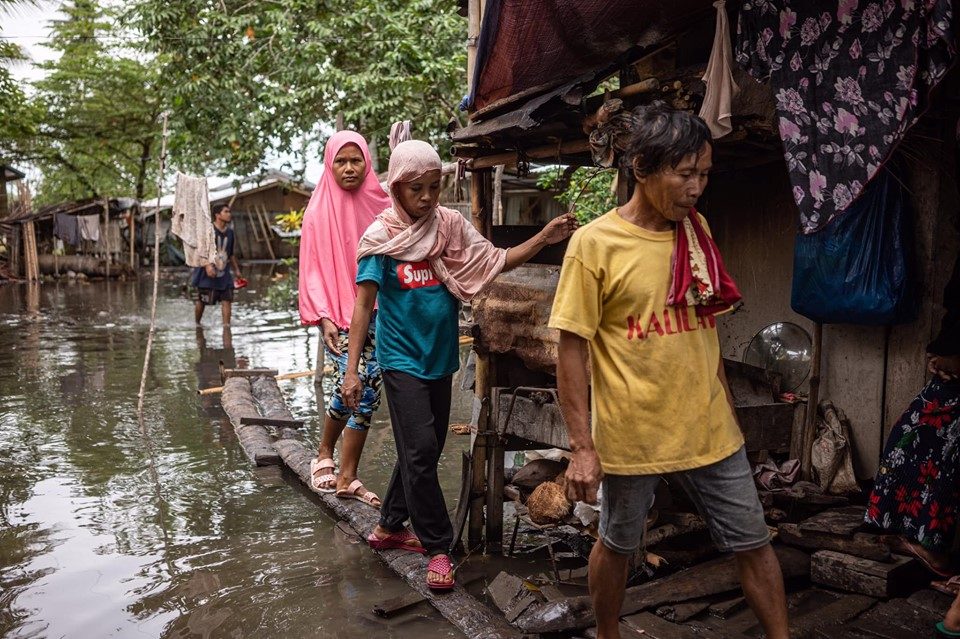
MANILA, Philippines – Families seeking refuge from armed conflict in at least two evacuation centers in Maguindanao faced a new struggle after their temporary homes got submerged in floodwater following heavy rains.
An evacuation site with 70 families in Barangay Pagatin in Shariff Saydona Mustapha, Maguindanao, has been flooded due to heavy rains since Sunday, July 28.
Oxfam’s Philippine office said that internally displaced persons (IDPs) displaced by armed conflict are also exposed to risks like flooding.
To walk around the flooded property, families built makeshift wooden bridges. Some also opted to wade through the ankle-deep floodwater, while others use a kuliglig, a hand tractor attached with a trailer.
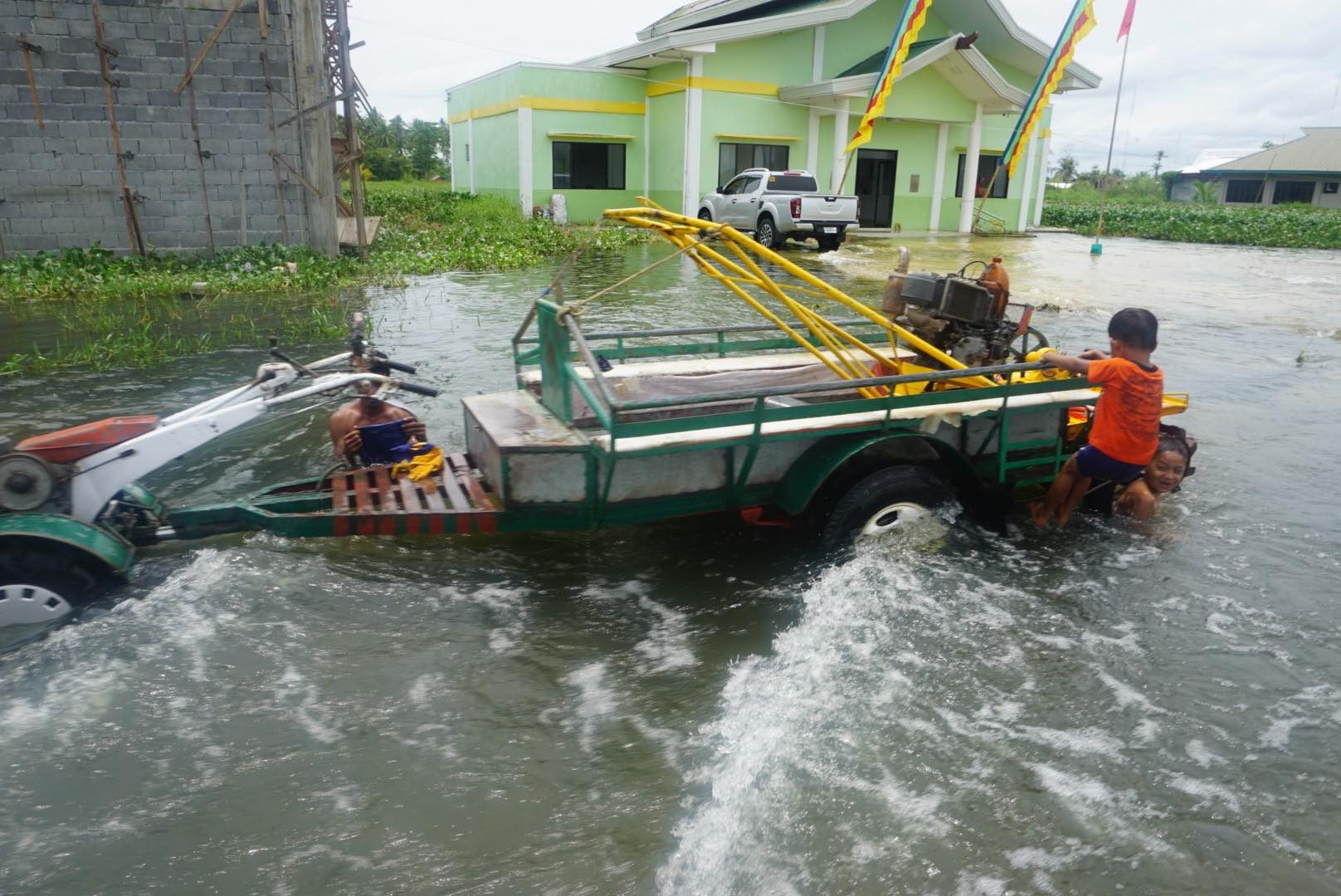
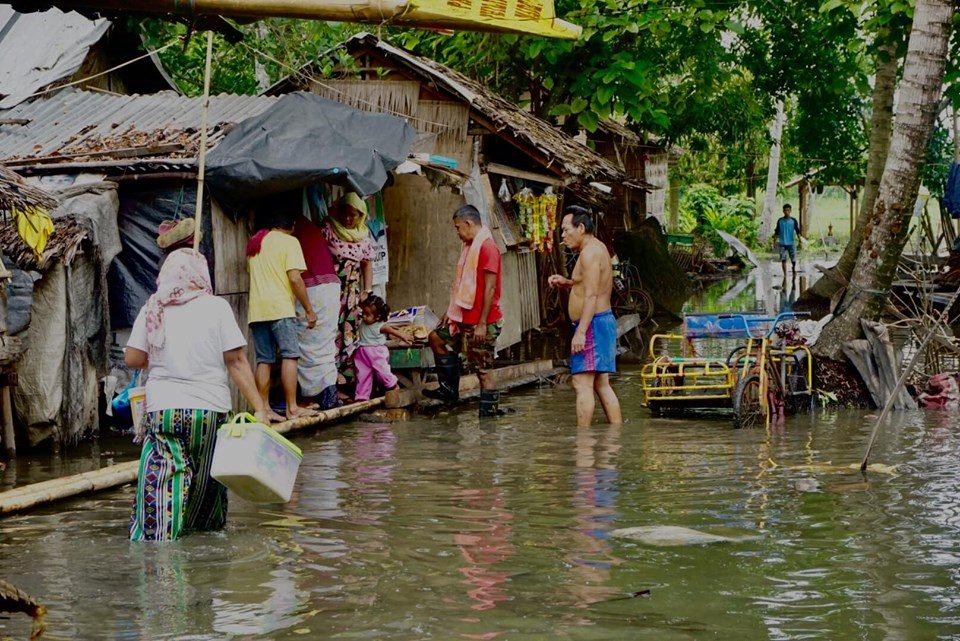
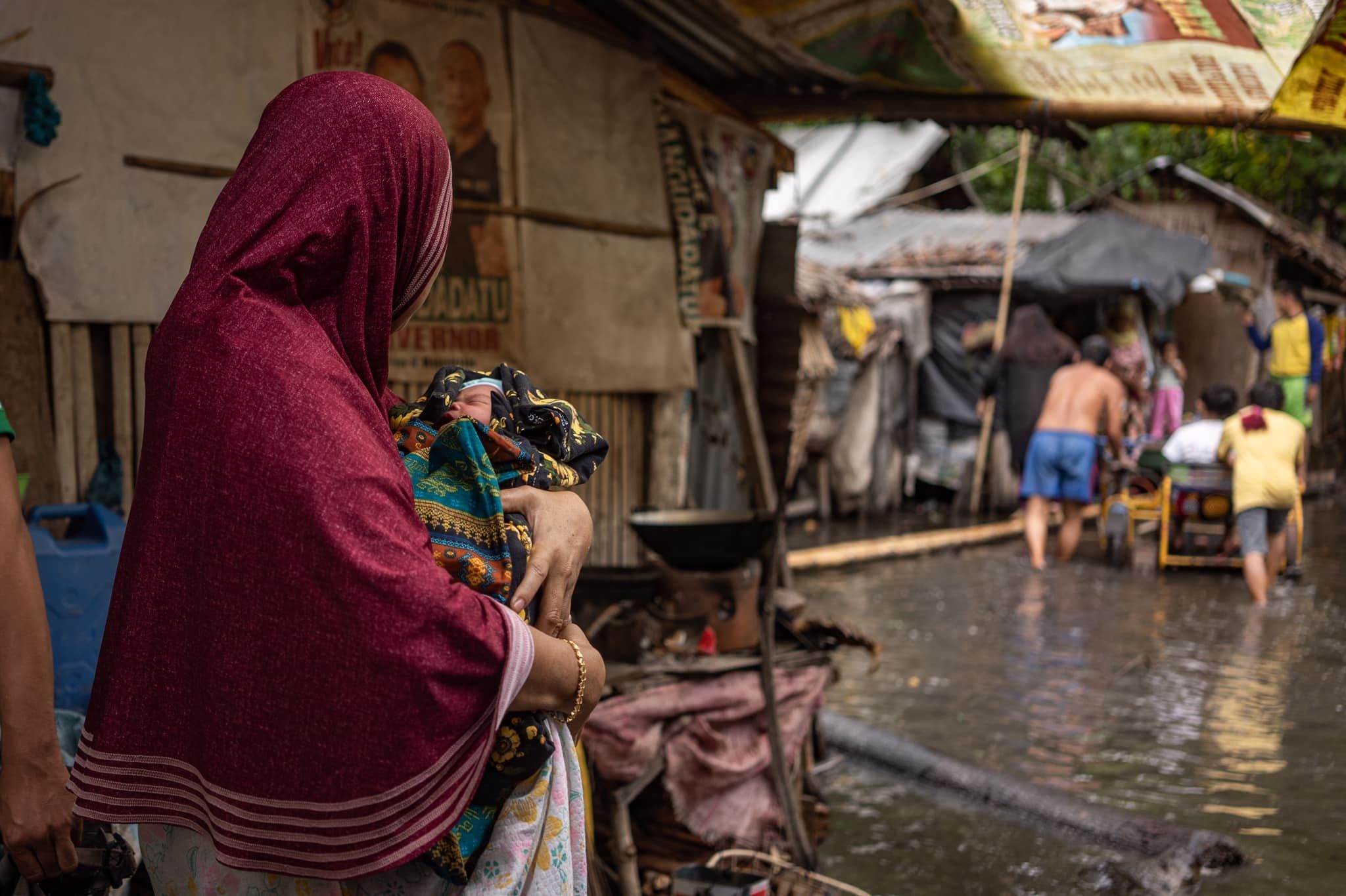
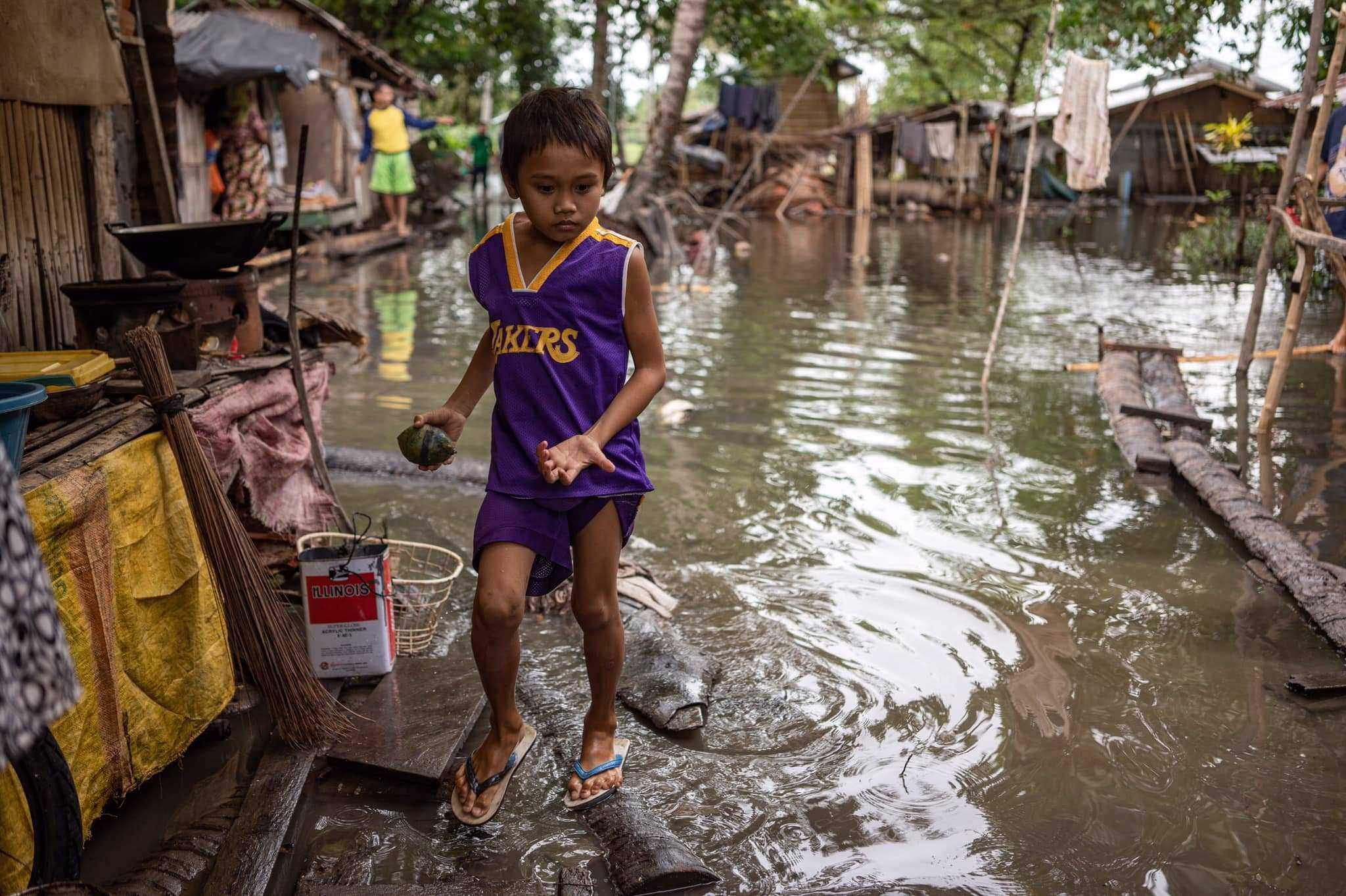
Internally displaced persons (IDPs) at the Kitango Elementary School in Datu Saudi Ampatuan faced a similar struggle, as the school had been flooded since Saturday, July 27. The school is located about minutes away from Barangay Pagatin.
Based on data from Oxfam in Philippines’ project partner Community Organizers Multiversity, 89 families were evacuated to the Kitango Elementary School earlier this year as part of a mass evacuation from armed conflict in the area in March.
Five families from Pikeg in Shariff Saydona Mustapha town stayed the Kitango Elementary School because they had no means yet to rebuild their homes that were destroyed because of military operations.
“They are staying there because they have nowhere to go. Their houses in Pikeg were already destroyed and there is an ongoing military operation in the area,” said April Abello Bulanadi, a media officer at Oxfam in the Philippines.
“Based on our interviews with the people in the community, their situation in the evacuation sites have worsened further because of the flooding. But they have learned to live with it because they had no choice,” she added.
Meanwhile, other families displaced by armed conflict in the province have built makeshift shelters outside the school’s vicinity and other evacuation sites in the community. (READ: ‘Host families’: A home for IDPs in Maguindanao)
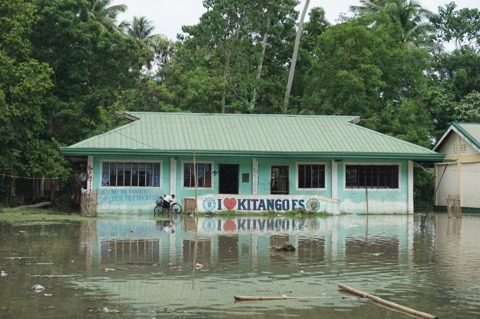
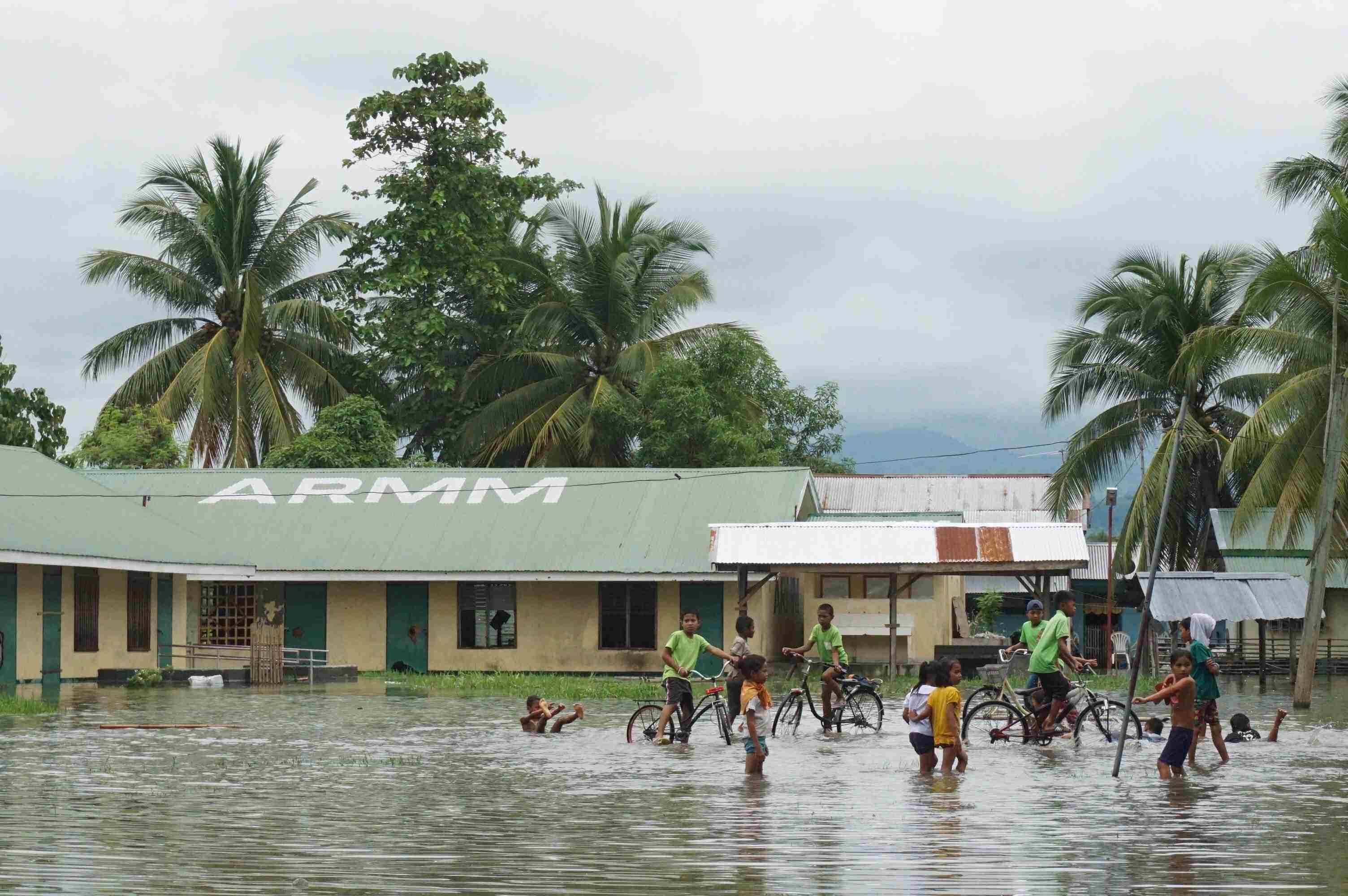
The IDPs preferred to stay in the flooded evcuation sites. Military operations against armed groups, and clan wars have created a climate of fear in Maguindanao and continued to displace families in conflict areas.
According to a report from the provincial office of the Ministry of Social Services in the Bangsamoro Autonomous Region in Muslim Mindanao, 7,395 families (approximately 36,975 individuals) have been displaced in 7 municipalities of Maguindanao as of April 4, 2019. (READ: [OPINION] Maguindanao is a forgotten crisis)
Aside from armed conflict and disasters, IDPs also struggle with the lack of decent shelter, food, water, sanitation, and hygiene, among other necessities.
To help improve their situation, Oxfam in the Philippines along with their partners have provided the IDPs with food, cash, hygiene kits, water kits, hand pumps, shelter materials, sleeping kits, toilets, solar lamps, and solar lighted posts in communal areas. – Rappler.com
Add a comment
How does this make you feel?
There are no comments yet. Add your comment to start the conversation.